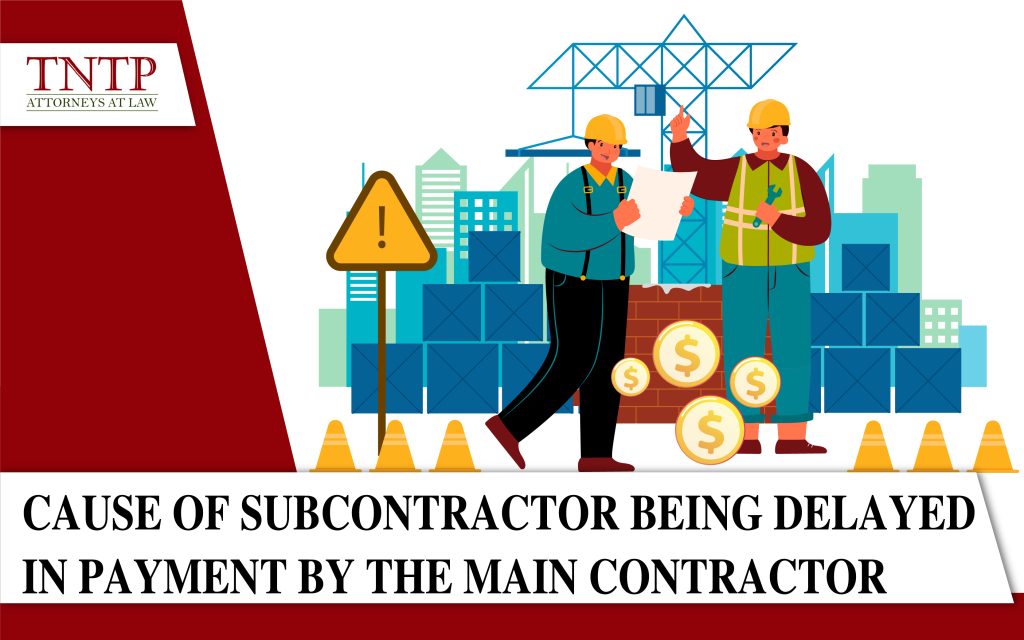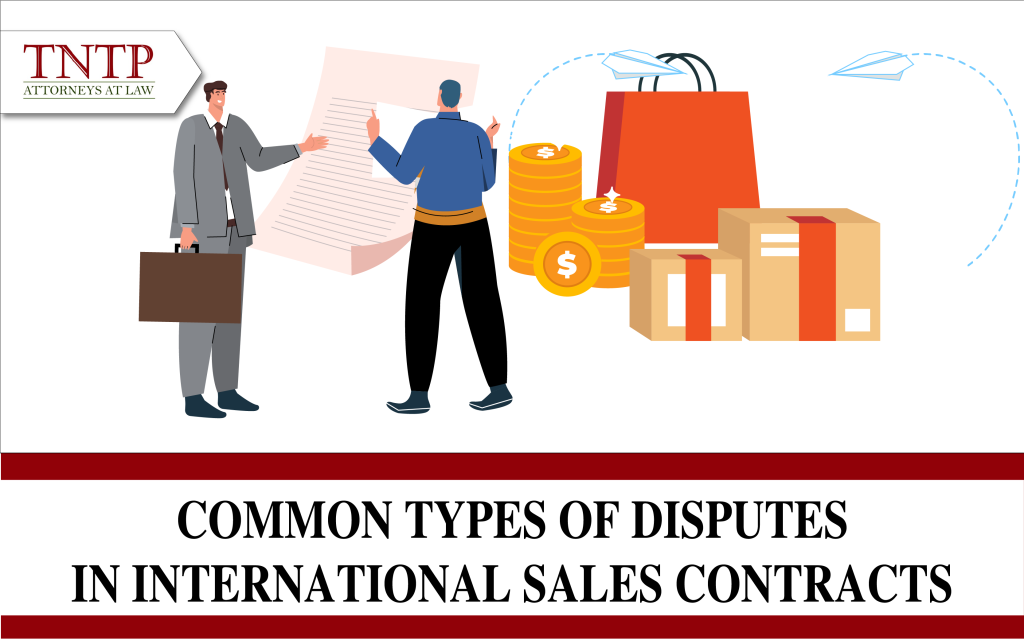Should the subcontractor sue the main contractor to recover the debt?
In the construction industry, the relationship between the main contractor and the subcontractor is typically established on a strict contractual basis to ensure the project’s progress and quality. However, delays in payment from the main contractor to the subcontractor are common and can cause significant financial difficulties for the subcontractor. When negotiation and internal resolution measures fail, the subcontractor faces a crucial question: Should they sue the main contractor to recover the debt? This article will analyze the legal aspects, benefits, and risks associated with the decision to sue, helping the subcontractor make an informed choice.
1. Assessing the practical situation and debt recovery potential before deciding to sue
1.1. Review the contract and payment terms
First, the subcontractor must thoroughly review the contract terms signed with the main contractor. The contract may include important clauses such as:
• Payment deadlines: Specifications regarding payment timelines after completing each phase of work or the entire project. This is a particularly critical criterion that must be identified as the basis for the subcontractor to prepare for a lawsuit.
• Penalty clauses: Identifying penalty terms in case the main contractor delays payment helps assess the subcontractor’s rights that can be claimed.
• Retention payment clause: This clause allows the main contractor to withhold a portion of the payment until the subcontractor’s work is fully accepted, usually ranging from 5-10% of the contract value, along with provisions for releasing the retained amount.
1.2. Determine the breach and debt recovery potential
If the contract specifies the payment deadlines and the main contractor breaches these terms, the subcontractor may have legal grounds to demand payment. However, before suing, the following should be evaluated:
• Payment history: If the main contractor frequently delays payments, it may signal financial risks or poor management.
• Financial capability of the main contractor: This is a crucial factor to consider before taking legal action. If the main contractor is facing financial difficulties, their ability to pay may be limited or even none. Even if the subcontractor receives a favorable judgment or decision, collecting the debt could be challenging. To assess the main contractor’s financial capability, the subcontractor should:
– Review Financial Statements of the main contractor: Examine the main contractor’s most recent financial statements to assess their financial condition, including revenue, profit, and existing debts.
– Identify Other Debts: Determine whether the main contractor owes other subcontractors or has significant outstanding debts. This can help assess the subcontractors’ priority if the main contractor’s assets are insufficient to cover all debts.
– Assets for Enforcement: Investigate the main contractor’s assets and determine whether they are mortgaged for bank loans or other third-party obligations. This will affect the ability to recover the debt.
• Total debt amount: Evaluate whether the debt is substantial enough to cover the costs associated with the lawsuit process (including court/arbitration fees, attorney fees, and other expenses for personnel during the dispute resolution process). This ensures that the amount recovered from the lawsuit exceeds the incurred costs, avoiding filing a lawsuit with no desired outcome.
2. Risks and costs of litigation
2.1. Legal and court costs
Litigation involves considerable costs, including:
• Attorney fees: These fees can vary depending on the complexity of the case and the attorney’s experience.
• Personnel costs: If the subcontractor does not hire an attorney, they may need to cover the costs for personnel to attend hearings and trials at various locations.
• Travel, printing, and document notarization costs (if any).
• Court fees/Arbitration fees: These are the costs paid to the court or arbitration center to resolve the case.
• Costs for evidence and experts: In some cases, to prove their argument in court, the subcontractor may need to hire independent experts for assessments or technical analysis. These costs can be significant and should be anticipated before deciding to sue.
2.2. Time and human resources
The litigation process can be time-consuming, especially if the case is complex or involves multiple parties. Such disputes can take several months to years to resolve. During this time, the subcontractor may struggle to maintain business operations due to a lack of funds.
2.3. Impact on business relationships
Litigation can have negative consequences for the relationship between the subcontractor and the main contractor:
• Loss of future collaboration opportunities: Suing could seriously damage the relationship between the parties, leading to the loss of future collaboration opportunities on other projects.
• Reputation and credibility: In business, a company’s reputation is extremely important. When a dispute is made public, both parties may face reputational harm.
3. Benefits of litigation
3.1. Protecting legitimate rights
Litigation is a legal measure to protect the subcontractor’s legitimate rights:
• Strong legal grounds: If the contract and evidence are clear, the subcontractor is likely to win the case and recover the owed amount.
• Enforceable judgments: Court judgments or arbitration awards are legally enforceable, and state authorities have the power to take measures to ensure that the violating party cannot avoid responsibility. This provides strong legal assurance for the subcontractor, helping them recover the debt legally and effectively.
3.2. Applying pressure and deterrence
Litigation not only helps recover the debt but also puts significant pressure on the main contractor, forcing them to comply with financial obligations:
• Setting a precedent: Successfully suing can set a precedent for similar disputes in the future, deterring the main contractor from delaying payments.
• Ensuring transparency: Litigation can be an effective way to clarify the responsibilities and obligations of the involved parties. Through the legal process, parties must present evidence and arguments, making the rights and obligations stipulated in the contract more transparent.
4. Pre-litigation solutions
In many cases, attempting negotiation or mediation measures can help the subcontractor achieve results without needing to litigate. These include:
• Direct negotiation: The subcontractor should proactively meet with the main contractor to discuss the payment issue, understand the reasons for the delay, and propose solutions such as extending payment deadlines or establishing a payment schedule.
• Mediation: If negotiation fails, the subcontractor may consider mediation as an effective way to resolve the dispute. Mediation not only helps resolve the issue quickly but also saves costs compared to litigation. This method allows the parties to retain control over the process and outcome while maintaining a cooperative relationship. TNTP has also published a detailed article on the commercial mediation process and methods for readers to refer to.
Suing the main contractor for debt recovery is not an easy decision and requires careful consideration by the subcontractor. Litigation may be the last and necessary measure to protect their rights, especially when other measures do not yield results. However, before making a decision, the subcontractor should comprehensively assess the contract situation, chances of success, costs, and the long-term impact of litigation. Legal consultation and support will be crucial in helping the subcontractor choose the most appropriate strategy.
This article, “Should the subcontractor sue the main contractor to recover the debt?”, is provided by TNTP. We hope it is helpful to our readers.
Sincerely,








